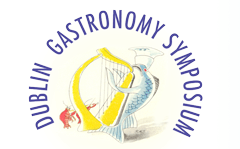Start Date
29-5-2024 11:45 AM
End Date
29-5-2024 12:00 PM
Description
For chefs, the kitchen is not merely a workplace. It is a complex socio-cultural domain shaped by history, tradition, and societal expectations, where a separate world view is shared, along with the ritual customs, artefacts and practices that define them as a tribe. Indeed chefs have a distinctive transformative power as role models, with the capacity to bestow symbolic meaning to food, the fabric of our memories, societies, and daily practices. The culinary domain, like any other institution, is defined not solely by its creations, but also by its perpetuated lived experiences including traumas, memories or traces, created and preserved by behaviours instilled through tradition, but also through the quest for perceived legitimacy. Fundamental to this description is the concept that the institution of chefs leaves lasting memories in our collective consciousness, our traditions, and in the evolution of our gastronomic institutions. Yet, while these imprints are diverse and multidimensional, certain underlying universal imperatives including the quest for legitimacy, tend to guide them towards convergence, a phenomenon encapsulated in Neo Institutional Theory by the construct of Institutional Isomorphism. This literature review attempts to link this theory to the issue of chef retention. Can chefs remain innovative and creative when homogeneity is subtly perpetuated, through coercive regulatory frameworks, mimetic emulation of perceived models of success, or normative cultural, societal, and industrial expectations? Could these isomorphic pressures be contributing to the poor retention of chefs?
Creative Commons License

This work is licensed under a Creative Commons Attribution-NonCommercial-Share Alike 4.0 International License.
DOI
https://doi.org/10.21427/m2w8-rn68
Included in
Food and Beverage Management Commons, Food Studies Commons, Organization Development Commons, Other Sociology Commons, Work, Economy and Organizations Commons
The Influence of Trauma and Tradition in Culinary Conformity and Chef Retention: Is Institutional Isomorphism Forcing Culinary Homogeneity Impacting Chef Retention?
For chefs, the kitchen is not merely a workplace. It is a complex socio-cultural domain shaped by history, tradition, and societal expectations, where a separate world view is shared, along with the ritual customs, artefacts and practices that define them as a tribe. Indeed chefs have a distinctive transformative power as role models, with the capacity to bestow symbolic meaning to food, the fabric of our memories, societies, and daily practices. The culinary domain, like any other institution, is defined not solely by its creations, but also by its perpetuated lived experiences including traumas, memories or traces, created and preserved by behaviours instilled through tradition, but also through the quest for perceived legitimacy. Fundamental to this description is the concept that the institution of chefs leaves lasting memories in our collective consciousness, our traditions, and in the evolution of our gastronomic institutions. Yet, while these imprints are diverse and multidimensional, certain underlying universal imperatives including the quest for legitimacy, tend to guide them towards convergence, a phenomenon encapsulated in Neo Institutional Theory by the construct of Institutional Isomorphism. This literature review attempts to link this theory to the issue of chef retention. Can chefs remain innovative and creative when homogeneity is subtly perpetuated, through coercive regulatory frameworks, mimetic emulation of perceived models of success, or normative cultural, societal, and industrial expectations? Could these isomorphic pressures be contributing to the poor retention of chefs?
